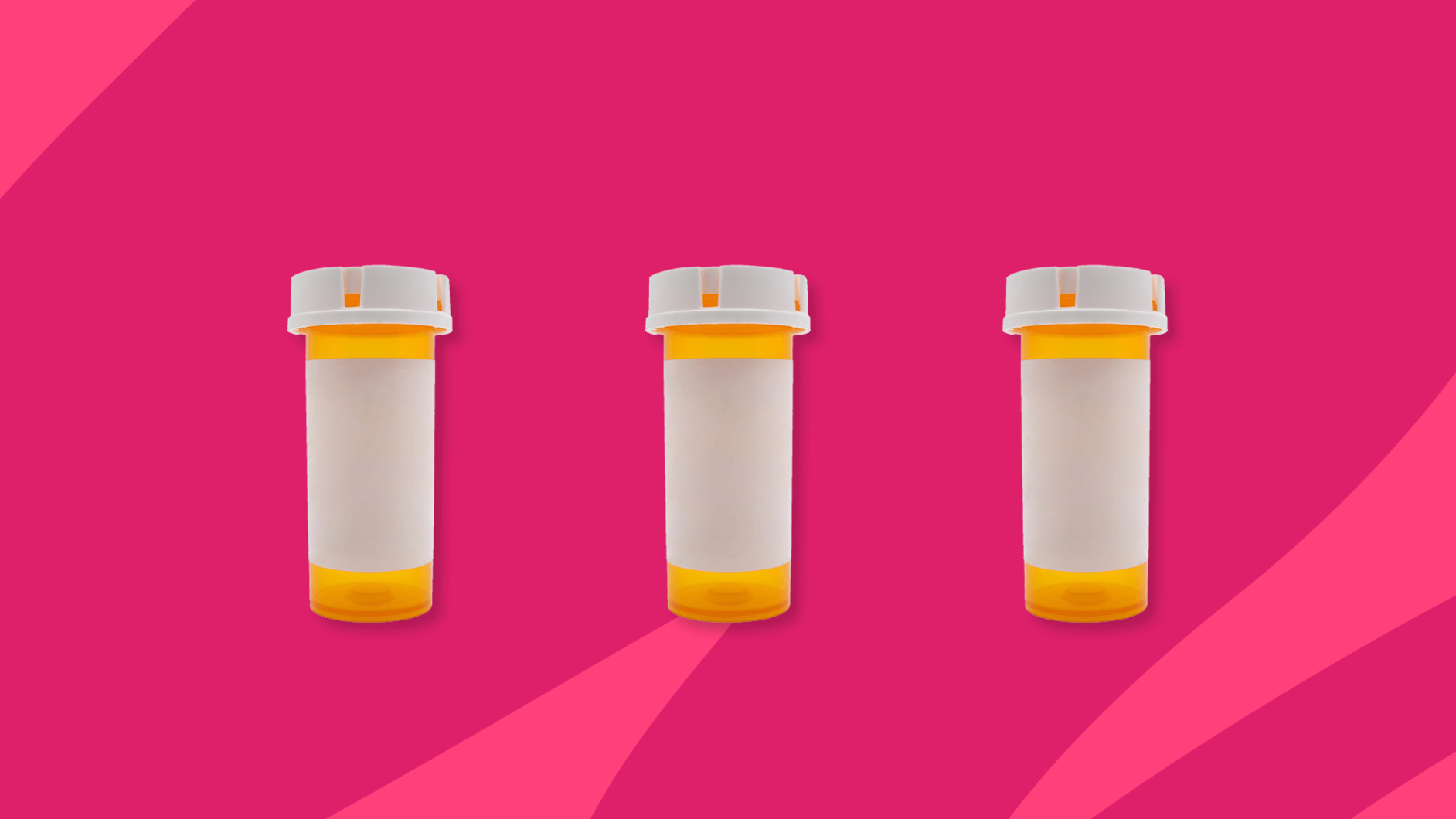Key takeaways
Biktarvy (bictegravir/emtricitabine/tenofovir alafenamide) is a prescription medication that is used as a complete treatment regimen for HIV-1 infection.
Alternative prescription medications include other antiretroviral therapies (ART) that are available as combination tablets, combination injections, and individual drugs taken together for a complete regimen.
Complete regimens of ART involve two, three, or more medications across a variety of drug classes.
There is currently no effective cure for HIV. However, ART and proper medical care can help control this condition.
Compare Biktarvy alternatives | Triumeq | Dovato | Genvoya | Stribild | Cabenuva | Natural alternatives | How to switch meds
Biktarvy is a brand-name prescription medication approved by the U.S. Food and Drug Administration (FDA) to treat human immunodeficiency virus type 1 (HIV-1) infections. Biktarvy is recommended as an initial treatment option for people starting HIV-1 therapy. HIV-1 infections weaken a person’s immune system by destroying important cells that fight disease and infection. Biktarvy is a tablet taken by mouth once daily. It contains three different medicines called antiretrovirals (ARV). This includes bictegravir, emtricitabine, and tenofovir alafenamide fumarate. As a combination tablet containing different classes of HIV medicines, Biktarvy is considered a complete regimen for treating HIV-1 infections.
The treatment for HIV is called antiretroviral therapy (ART), and it helps reduce the amount of HIV in a person’s body. ART consists of taking a combination of HIV medicines, which is called an HIV treatment regimen. Typically, an initial HIV treatment regimen includes three HIV medicines from at least two different HIV drug classes. People must start HIV treatment as soon as possible after diagnosis as delaying treatment can put someone at a higher risk of transmitting an HIV infection to partners, getting sick, and developing AIDS (acquired immunodeficiency syndrome).
Many HIV medications have significant drug interactions with other drugs, so it is important to review medication lists with a healthcare provider. Antiretroviral medications share common side effects, including nausea, vomiting, diarrhea, difficulty sleeping, headache, dizziness, dry mouth, rash, and fatigue.
While there is currently no effective cure for HIV, this condition can be controlled with proper medical care. The Centers for Disease Control and Prevention (CDC) estimated that in 2021, approximately 1.2 million people in the United States had HIV. When it comes to Biktarvy tablets, despite being an effective treatment for some people, it may not be the best and safest treatment for everyone treating HIV-1 infections.
What can I take in place of Biktarvy?
There are other FDA-approved options available to treat HIV-1 infections that do not improve with Biktarvy. These alternative prescription medications include other antiretroviral therapies, such as oral and injectable options. Most antiretroviral therapies involve two, three, or more medications across various drug classes. Certain HIV-1 treatments will work better for some people as the medications do not affect everyone in the same way, so a change in therapy is not unusual. Healthcare providers can consult an HIV specialist with additional questions or concerns about regimen switches. These options may be more suitable for certain individuals due to their dosing schedule, route of administration, side effect profiles, and cost.
Compare Biktarvy alternatives |
|||
|---|---|---|---|
| Drug name | Uses | Dosage | Savings options |
| Biktarvy
(bictegravir/emtricitabine/ tenofovir alafenamide fumarate) |
Treatment of HIV-1 infection | Take 1 tablet by mouth once daily | Biktarvy coupons |
| Cabenuva
(cabotegravir/ rilpivirine) |
Treatment of HIV-1 infection | Injected by a healthcare professional by gluteal intramuscular (into the muscle) administration once monthly | Cabenuva coupons |
| Dovato
(dolutegravir/lamivudine) |
Treatment of HIV-1 infection | Take 1 tablet by mouth once daily | Dovato coupons |
| Genvoya
(elvitegravir/cobicistat/ emtricitabine/tenofovir alafenamide) |
Treatment of HIV-1 infection | Take 1 tablet by mouth once daily | Genvoya coupons |
| Juluca
(dolutegravir/rilpivirine) |
Treatment of HIV-1 infection | Take 1 tablet by mouth once daily | Juluca coupons |
| Stribild
(elvitegravir/cobicistat/ emtricitabine/tenofovir disoproxil fumarate) |
Treatment of HIV-1 infection | Take 1 tablet by mouth once daily | Stribild coupons |
| Triumeq
(dolutegravir/abacavir/ lamivudine) |
Treatment of HIV-1 infection | Take 1 tablet by mouth once daily | Triumeq coupons |
Other alternatives to Biktarvy
Other HIV-1 infection therapy options include combining several drugs to make a complete regimen. While the above alternatives listed are combination medications that can be more convenient and do not require multiple tablets or capsules, healthcare providers can prescribe individual drugs to ensure a complete regimen. Some of the alternatives listed below can be considered as individual parts to make a complete treatment regimen:
Combination Medications
- Cimduo (lamivudine/tenofovir disoproxil fumarate)
- Complera (emtricitabine/rilpivirine/tenofovir disoproxil fumarate)
- Delstrigo (doravirine/lamivudine/tenofovir disoproxil fumarate)
- Descovy (tenofovir alafenamide/emtricitabine)
- Evotaz (atazanavir/cobicistat)
- Kaletra (lopinavir/ritonavir)
- Odefsey (emtricitabine/rilpivirine/tenofovir alafenamide)
- Prezcobix (darunavir/cobicistat)
- Symfi (efavirenz/lamivudine/tenofovir disoproxil fumarate)
- Symtuza (darunavir/cobicistat/emtricitabine/tenofovir alafenamide)
- Triumeq (abacavir/dolutegravir/lamivudine)
- Truvada (tenofovir disoproxil fumarate/emtricitabine)
Single Medications
- Aptivus (tipranavir)
- Edurant (rilpivirine)
- Emtriva (emtricitabine)
- Epivir (lamivudine)
- Fuzeon (enfuvirtide)
- Intelence (etravirine)
- Isentress (raltegravir)
- Pifeltro (doravirine)
- Prezista (darunavir)
- Reyataz (atazanavir)
- Tivicay (dolutegravir)
- Viread (tenofovir disoproxil fumarate)
- Ziagen (abacavir)
Top 5 Biktarvy alternatives
The following are some of the most common alternatives to Biktarvy.
1. Triumeq
Triumeq is a complete HIV-1 regimen that contains the antiretroviral medicines dolutegravir, abacavir, and lamivudine. Like Biktarvy, Triumeq is a combination tablet taken once a day. According to the International Antiviral Society (IAS), Triumeq is recommended as initial therapy for most people treating HIV-1 due to high efficacy, tolerability, safety, high barrier to resistance, low pill burden (the number of tablets or capsules that a person takes on a regular basis) and low potential for drug interactions. People with hepatitis B virus (HBV) or those with an unknown HBV status should not use Triumeq along with people who have a certain gene, HLA-B*5701 allele, predisposing them to an allergic reaction. Triumeq is a suitable alternative for those who would like to seek out an alternative that can be taken once a day and has a low pill burden.
2. Dovato
Dovato is a two-drug complete HIV-1 medication containing the antiretroviral medicines dolutegravir and lamivudine. Dovato is a tablet that is taken once a day. This alternative can be used as initial therapy for people with no antiretroviral treatment history or to replace the current antiretroviral regimen in those who have viral suppression (the HIV-1 viral load is undetectable) on a stable antiretroviral regimen. People with HBV or those with an unknown HBV status should not use Dovato. It’s important to test for this status before starting therapy. This alternative has proven efficacy, favorable tolerability, and ease of use and has a relatively lower toxicity risk. Dovato is a well-suited alternative for those who prefer a low pill burden.
3. Genvoya
Genvoya is a four-drug complete HIV-1 medication containing elvitegravir, cobicistat, emtricitabine (abbreviated FTC), and tenofovir alafenamide (TAF). Genvoya is a tablet that is taken once a day. This alternative is effective and tolerable but is typically only used in certain clinical situations. Genvoya is usually recommended as initial therapy in certain people, including those with no antiretroviral treatment history or those with viral suppression on a stable antiretroviral regimen for at least six months with no history of treatment failure.
4. Stribild
Similar to Genvoya, Stribild is a four-drug complete HIV-1 treatment option containing elvitegravir, cobicistat, emtricitabine (abbreviated FTC), and tenofovir disoproxil fumarate (TDF). Stribild is a tablet that is taken once a day. Like Genvoya, Stribild is effective and tolerable but is usually recommended for certain people compared to the preferred initial medications. This alternative can be used in those with no antiretroviral treatment history or those with viral suppression on a stable antiretroviral regimen for at least six months with no history of treatment failure.
5. Cabenuva
Cabenuva is a two-drug complete HIV-1 medication regimen containing cabotegravir and rilpivirine that comes as an intramuscular injection (into the muscle). A healthcare professional administers this alternative option at the doctor’s office, and it only has to be given once a month and potentially every two months for some people. The injection is inserted into the gluteal muscle (muscles in the buttocks area) and may cause temporary pain at the injection site. This long-acting alternative option is suitable for people who are engaged with their health care, have viral suppression on oral therapy for 3 to 6 months, and agree to make frequent clinic visits needed to receive the injectable drugs.
Natural alternatives to Biktarvy
Antiretroviral therapy (ART) is an effective treatment for HIV-1 and requires prescription medications to make a complete regimen. Natural alternatives and complementary therapy can be used in addition to ART to help make immune systems stronger, improve well-being, and help deal with symptoms of HIV or side effects from ART. It’s important to openly communicate with the healthcare team regarding the use of natural alternatives and complementary therapy to ensure the safety of using them along with ART.
It’s important to live a healthy lifestyle, including eating healthy, exercising regularly, avoiding alcohol, and quitting smoking for those who smoke. A healthy diet can help provide the energy and nutrients the body needs to fight HIV and other infections. It can also help with HIV symptoms and complications. In general, it’s best to eat a variety of foods from the five food groups (fruits, vegetables, grains, protein foods, and dairy), eat the right amount of food to maintain a healthy weight, and pick foods low in saturated fat, salt and added sugars. While exercise can help increase strength and endurance, it can also reduce the risk of depression and help the immune system work better to fight infections.
RELATED: Try these 15 quick tips for staying fit and healthy
How to switch to a Biktarvy alternative
1. Discuss all health conditions with a healthcare provider
Before switching from Biktarvy to an alternative, the healthcare provider must be aware of all medical conditions. Many alternatives should be used with caution or avoided with certain medical conditions.
2. Do not suddenly stop taking Biktarvy without medical advice
Only stop taking Biktarvy if the healthcare provider has been consulted and decided stopping the medication is safe. Stopping HIV-1 therapy without an established treatment plan can cause increases in viral load (increased levels of HIV). Additionally, a healthcare provider must confirm there are no signs of HBV, as stopping Biktarvy suddenly could make this condition worse.
3. Discuss all prescription and over-the-counter medications with a healthcare provider
Before switching from Biktarvy to an alternative, a healthcare provider reviews a complete medication list, including prescription drugs, OTC medications, vitamins, and supplements. HIV medications have significant drug interactions with other drugs, and some may be dangerous.
4. Continue to stick with the treatment plan
HIV treatment can be hard and challenging to keep up with. It’s important for people managing HIV-1 to stick to their treatment plan and reach out for support. The healthcare team can help simplify treatment regimens and reduce the pill burden. Support teams can also help navigate conversations with partners, family, and friends about HIV status. Resources for people with HIV can be found on the CDC website.
Sources
- Biktarvy Prescribing Information, Food and Drug Administration (FDA)
- Antiretroviral drugs for treatment and prevention of HIV infection in adults, International Antiviral Society JAMA Network (2022)
- HIV overview, National Institutes of Health
- Guidelines for the use of antiretroviral agents in adults and adolescents with HIV, National Institutes of Health (2022)
- HIV treatment, CDC.gov
- Healthy living with HIV, CDC.gov
- Complementary and integrative therapies for HIV, U.S. Department of Veterans Affairs
- Cabenuva prescribing information, DailyMed
- Dovato prescribing information, DailyMed
- Genvoya prescribing information, DailyMed
- Juluca prescribing information, DailyMed
- Stribild prescribing information, DailyMed
- Triumeq prescribing information, DailyMed











